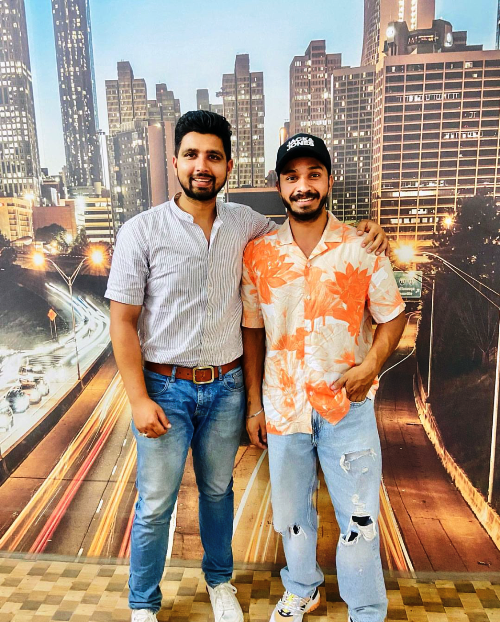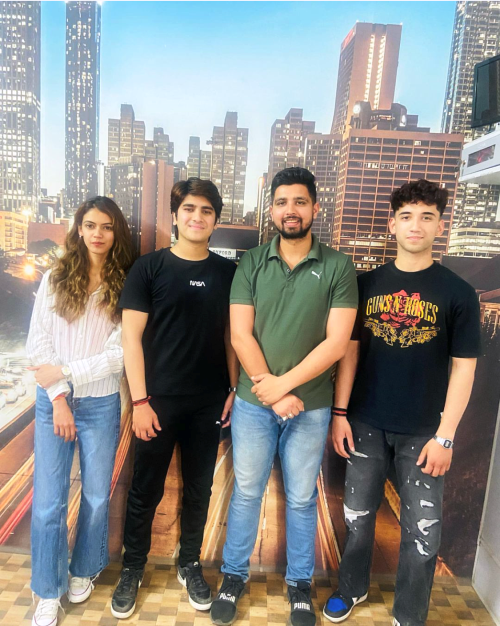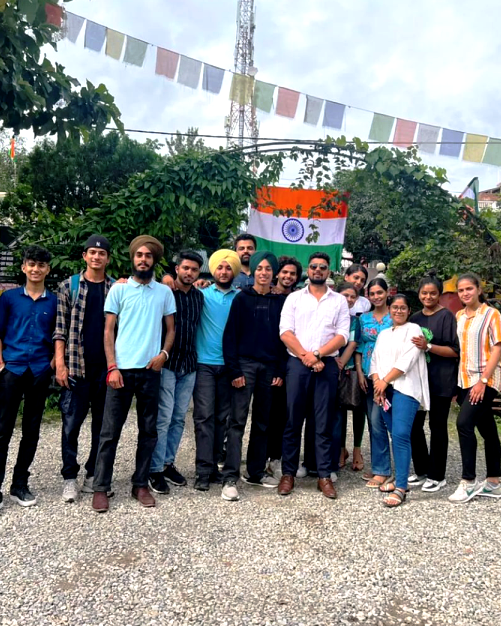Reading Passage 1: Striking Back at Lightning with Lasers
Questions 1-5: Multiple choice questions
[This type of question asks you to choose a suitable answer from the options using the knowledge you gained from the passage. Generally, this question is found as the last question so you should not worry much about it. Finding all the answers for previous questions gives you a good idea about the title.]
Question 1: The main topic discussed in the text is –
Keywords for the question: main topic,
A very quick reading (skimming) of the passage will let us know about the following facts:
Paragraph no. 1: Lightning and its adverse effects
Paragraph no. 2: Researchers has found a way to control lightning’s effects with laser
Paragraph no. 3: A project to strike back at lightning survived
Paragraph no. 4: Lightning may change its own course and hit somewhere else
Paragraph no. 5: Research needs to be risk-free
Paragraph no. 6: How the new research idea may work and be used in events
Paragraph no. 7: The mammoth size of the laser
Paragraph no. 8: The much needed money for producing the laser at a cheaper price
Paragraph no. 9: The project can be helpful for other scientists and experts
Paragraph no. 10: The laser has a good chance to work against hailstorms
Now, we can decide that option A is not a match because this passage is not about the damage lightning does to US golf course and players; option B is not a match because the passage does not talk about supplying power to US and Japan; and option C is not a match because we find only one way of trying to control lightning strikes.
Option D is our answer as the main topic is ‘A laser technique that may work to control lightning strikes.
So, the answer is: D (a laser technique used in trying to control lightning strikes.)
Special tip: As the question asks to find out the main topic of the passage, this question should be answered after all the 12 questions of this passage.
Question 2: According to the text, every year lightning –
Keywords for the question: every year, lightning,
Take a look at the last lines of paragraph A, “. . .. And there is damage to property too. Lightning damage costs American power companies more than $100 million a year.” This means that every year lightning causes a great amount of damage to buildings.
Here, damage to property = damage to buildings, a year = every year,
So, the answer is: A (does considerable damage to buildings during thunderstorms.)
Question 3: Researchers at the University of Florida and at the University of New Mexico –
Keywords for the question: Researchers, University of Florida, University of New Mexico,
The answer can be found in two paragraphs.
First take a look at lines 3-5 of paragraph no. 3, “The technique survives to this day at a test site in Florida run by the University of Florida, with support from the Electrical Power Research Institute (EPRI), based in California.” So, Researchers at the University of Florida receive funds from EPRI.
Now, go to paragraph no. 5 and look at lines 2-3, “. . . points out Jean-Claude Diels of the University of New Mexico. Diels is leading a project, which is backed by EPRI,. .. .” So, researchers at the University of New Mexico also receive funds from EPRI.
So, the answer is: A (receive funds from the same source.)
Questions 4-6: (Completing sentences with NO MORE THAN TWO WORDS)
[For this type of question, candidates need to complete the sentences with NO MORE THAN TWO WORDS from the passage. Candidates need to look for keywords in the sentence beginnings and find the relative paragraphs and then sentences in the passage. Skimming and scanning, both reading skills are essential for this question type.]
Question 4: EPRI receives financial support from ______________.
Keywords for the question: EPRI receives, financial supports,
Have a close look at paragraph no. 3, lines 5-6, “. . . .. with support from the Electrical Power Research Institute (EPRI), based in California. EPRI, which is funded by power companies, . . .. .”
Here, funded by means receives financial support from,
So, the answer is: power companies
Question 5: The advantage of the technique being developed by Diels is that it can be used ____________.
Keywords for the question: advantage, technique, Diels, can be used,
In paragraph no. 5, lines 2-4 say, “. …. .. points out Jean-Claude Diels of the University of New Mexico. Diels is leading a project, which is backed by EPRI, to try to use lasers to discharge lightning safely- and safety is a basic requirement since no one wants to put themselves or their expensive equipment at risk.”
So, the answer is: safely (you must use the adverb form of the noun ‘safety’)
Question 6: The main difficulty associated with using the laser equipment is related to its ____________.
Keywords for the question: main difficulty, using the laser equipment, related to,
In paragraph no. 7, the writer talks about the main problem related to the laser equipment. “However, there is still a big stumbling block. The laser is no nifty portable: it’s a monster that takes up a whole room. Diels is trying to cut down the size and says that a laser around the size of a small table is in the offing.”
Here, big stumbling block = main difficulty, it’s a monster that takes up a whole room = size,
So, the answer is: size
Questions 7-10: (Completing summary with a list of words)
[In this type of question, candidates are asked to complete a summary with a list of words taken from the passage. Candidates must write the correct letter (not the words) as the answers. Keywords and synonyms are important to find answers correctly. Generally, this type of question maintains a sequence. Find the keywords in the passage and you are most likely to find the answers.]
Question no. 7: In this method, a laser is used to create a line of ionisation by removing electrons from __________.
Keywords for the question: laser, used, create, a line of ionisation, removing electrons from,
In paragraph no. 6, the author of the passage writes in lines 1-4, “The idea began some 20 years ago, when high-powered lasers were revealing their ability to extract electrons out of atoms and create ions. If a laser could generate a line of ionisation. .. ..”
Here, generate a line of ionisation = create a line of ionisation, removing electrons from = extract electrons out of,
So, the answer is: B (atoms)
Question no. 8 and 9: This laser is then directed at 8. __________ in order to control electrical charges, a method which is less dangerous than using 9. __________.
Keywords for the question: laser, directed, control electrical charges, a method, less dangerous than,
Again, in paragraph no. 6, carefully look at lines 2-3, “If a laser could generate a line of ionisation in the air all the way up to a storm cloud, this conducting path could be used to guide lightning to Earth . … . ”
Now, paragraph no. 6 is an explanation of using lasers in a populated area by Jean-Claude Diels of the University of New Mexico. If you take a look at the first line of paragraph no. 5, you’ll find the reason for using lasers, “And anyway, who would want to fire streams of rockets in a populated area?”
This means lasers are less dangerous than rockets.
So, the answers are:
- C (storm clouds)
- G (rockets)
Question no. 10: As a protection for the lasers, the beams are aimed firstly at __________.
Keywords for the question: protection, for the lasers, beams, aimed firstly,
For this question, we have to look at lines 5-6 of paragraph no.6, “. . .. To stop the laser itself being struck, it would not be pointed straight at the clouds. Instead it would be directed at a mirror and from there into the sky”.
So, mirrors will give the much needed protection for the lasers.
Here, directed at = aimed . . . at,
So, the answer is: D (mirrors)
Questions 11-13: YES, NO, NOT GIVEN
[In this type of question, candidates are asked to find out whether:
The statement in the question agrees with the claims of the writer in the passage – YES
The statement in the question contradicts the claims of the writer in the passage – NO
If there is no information on this – NOT GIVEN
For this type of question, you can divide each statement into three independent pieces and make your way through with the answer.]
Question 11: Power companies have given Diels enough money to develop his laser.
Keywords for this question: power companies, given, Diels, enough money, to develop his laser,
In paragraph no. 8 the writer says in lines 1-3, “Bernstein says that Diels’s system is attracting lots of interest from the power companies. But they have not yet come up with the 5 million dollars that EPRI says will be needed to develop a commercial system…”.
This means even though power companies are fascinated by Diels’s system, they have not yet provided him with the money that he needs.
So, the answer is: NO
Question 12: Obtaining money to improve the lasers will depend on tests in real storms.
Keywords for this question: obtaining money, improve the lasers, depend on, tests, real storm,
In paragraph no. 8, lines 3-6 the author says, “He reckons that the forthcoming field test will be the turning point – and he’s hoping for good news. Bernstein predicts ‘an avalanche of interest and support’ if all goes well. He expects to see cloud – zappers eventually costing 50,000 dollars to 100,000 dollars each.”
Here, the forthcoming field test will be the turning point indicates that the coming tests in real storms will determine whether he will obtain the money or not.
So, the answer is: YES
Question 13: Weather forecasters are intensely interested in Diels’s system.
Keywords for this question: Weather forecasters, intensely interested, Diels’s system,
We find the mention of ‘meteorology’ in both paragraphs no. 9 and 10. However, neither of the paragraphs indicates anything about weather forecasters’ interest in Diels’s system.
So, the answer is: NOT GIVEN
Reading Passage 2: The Nature of Genius
Questions 14-18 (Choosing from list of factors):
[In this question type, IELTS candidates are provided with a list of factors with a question. Candidates must find out three/four or five factors that matches with the questions. Most of the time, the answers can be found in one or two paragraphs.
TIPS: Both skimming and scanning are needed for this kind of question. You need to skim the passage to find out the paragraph where the answers can be found. Then you can scan it to find all the answers. The answers can be written in any order.]
Question for 14-18: Below are listed some popular beliefs about genius and giftedness.
Which FIVE of these beliefs are reported by the writer of the text?
For this question, we have to find out the paragraph where popular beliefs about genius and giftedness are reported.
A quick skimming of paragraph A indicates that the answers can’t be found there. Now, in paragraph B, take a look at lines 2-3, “. . .In the mythology of giftedness. . ..”
Here, mythology = popular beliefs.
Now, let’s match the answers:
In lines 4-5, “.. . .. that intellectuals are impractical, that prodigies burn too brightly too soon and burn out, … ..”.
Here, prodigies = gifted people/genius people, burn out = exhausted,
This information matches with the answer B.
In lines 10-11, “… . that people with gifts have a responsibility to use them. . . ”.
Here, have a responsibility = should, use them = use their gifts,
This information matches with the answer C.
In lines 6-7, “… . that genius runs in families. . . ”.
Here, genius runs in families = Genius is inherited,
This information matches with the answer F.
In line no. 9, “… . that genius goes unrecognized and unrewarded. . . ”.
Here, genius goes unrecognized and unrewarded = People never appreciate true genius,
This information matches with the answer H.
In line no. 10, “… . that adversity makes men wise . . . ”.
Here, adversity = difficulties, develop their greatness = makes men wise,
This information matches with the answer J.
The other options such as A, D, E, G, I, K, do not match with the information provided in paragraph B.
So the answers are: (in any order)
B
C
F
H
J
Questions 19-26 (TRUE, FALSE, NOT GIVEN)
In this type of question, candidates are asked to find out whether:
The statement in the question agrees with the information in the passage – TRUEThe statement in the question contradicts the information in the passage – FALSEIf there is no information on this – NOT GIVEN
[For this type of question, you can divide each statement into three independent pieces and make your way through with the answer.]
Question 19: Nineteenth-century studies of the nature of genius failed to take into account the uniqueness of the person’s upbringing.
Keywords for this question: Nineteenth-century studies, failed to take into account, uniqueness, person’s upbringing,
We find the reference of 19th century studies in paragraph no. 3. Now, take a look at lines 7-9, “. . However, the difficulty with the evidence produced by these studies, fascinating as they are in collecting together anecdotes and apparent similarities and exceptions, is that they are not what we would today call norm-referenced.”
Here, norm-referenced means followed by a fixed principle. Here, the principle is to maintain standard in upbringing a genius person, which was not maintained properly as “. … the cases studied were members of the privileged classes” (line no. 16). Therefore, the information matches with the question.
So, the answer is: TRUE
Question 20: Nineteenth-century studies of genius lacked both objectivity and a proper scientific approach.
Keywords for this question: Nineteenth-century studies, lacked, objectivity, proper scientific approach,
The last sentence of paragraph no. 3 points us to the answer, “It was only with the growth of paediatrics and psychology in the twentieth century that studies could be carried out on a more objective, if still not always very scientific, basis.”
This sentence directly indicates that 19th century studies on genius could not be conducted on an objective basis and that scientific approach was not so proper.
So, the answer is: TRUE
Question 21: A true genius has general powers capable of excellence in any area.
Keywords for this question: true genius, general powers, excellence in any area,
Let’s have a look at paragraph no. 4 for this question’s answer. In lines 9-10, the writer gives reference to Dr. Samuel Johnson’s observation, “ ‘The true genius is a mind of large general powers, accidentally determined to particular direction’. We may disagree with the ‘general’, for we doubt if all musicians of genius could have become scientists of genius or vice versa, …. ..”
This means a genius person does not have general powers which make him or her capable of excellence in any area; otherwise musicians could easily be become scientists. So, the information is contradictory to the question.
So, the answer is: FALSE
Question 22: The skills of ordinary individuals are in essence the same as the skills of prodigies.
Keywords for this question: skills, ordinary individuals, in essence, same, prodigies,
Take a look at lines 1-2 of paragraph no. 5, “.. …the achievements of prodigies are the manifestations of skills or abilities which are similar to, but also much superior to, our own.”
Here, are similar to = the same as
Remember, the line means that the skills of ordinary people are mainly the same as the genius people, only genius people can use them in a superior way.
So, the answer is: TRUE
Question 23: The ease with which truly great ideas are accepted and taken for granted fails to lessen their significance.
Keywords for this question: ease, truly great ideas, accepted and taken for granted, fails, lessen, significance,
In paragraph no. 5, in lines 4-8, the writer illustrates that “. .. .the hard-won discoveries of scientists like Kepler or Einstein become the commonplace knowledge of schoolchildren and the colours of an artist like Paul Klee so soon appear on the fabrics we wear. This does not minimise the supremacy of their achievements….”
Here, This does not = fails, lessen = minimize, commonplace knowledge = the ease,
Therefore, great ideas (hard-won discoveries) are accepted and taken for granted means that even schoolchildren can learn them.
So, the answer is: TRUE
Question 24: Giftedness and genius deserve proper scientific research into their true nature so that all talent may be retained for the human race.
Keywords for this question: Giftedness and genius, deserve, proper scientific research, true nature, all talent, retained for the human race,
In the passage we do not find any information regarding what genius really is, in order for all talent to be retained.
So, the answer is: NOT GIVEN
Question 25: Geniuses often pay a high price to achieve greatness.
Keywords for this question: Geniuses, often, pay, high price, achieve greatness,
In paragraph 6, lines 7-10, the writer talks about what genius people have to go through to achieve greatness, “We may envy their achievements and fame, but we should also recognise the price they may have paid in terms of perseverance, single-mindedness, dedication, restrictions on their personal lives, the demands upon their energies and time, and how often they had to display great courage to preserve their integrity or to make their way to the top.”
This means genius people have to pay a great price to reach the top of their success.
So, the answer is: TRUE
Question 26: To be a genius is worth the high personal cost.
Keywords for this question: to be a genius, worth, high personal cost,
In paragraph 6, the writer mentions about the high price that genius people may have paid to achieve greatness. However, we find no reference to whether all the personal costs, restrictions on their personal lives, demands on their time, dedication, energy and all other matters, are quite worthy of becoming a genius.”
So, the answer is: NOT GIVEN
Reading Passage 3: How does the biological clock tick?
Questions 27-32 (List of headings):
[In this question type, IELTS candidates are provided with a list of headings, usually identified with lower-case Roman numerals (i, ii, iii, etc,). A heading will refer to the main idea of the paragraph or section of the text. Candidates must find out the equivalent heading to the correct paragraphs or sections, which are marked with alphabets A, B, C and so forth. Candidates need to write the appropriate Roman numerals in the boxes on their answer sheets. There will always be two or three more headings than there are paragraphs or sections. So, some of the headings will not be used. It is also likely that some paragraphs or sections may not be included in the task. Generally, the first paragraph is an example paragraph which will be done for the candidates for their understanding of the task.
TIPS: Skimming is the best reading technique. You need not understand every word here. Just try to gather the gist of the sentences. That’s all. Read quickly and don’t stop until you finish each sentence.]
Question 27: Paragraph B
Look at lines 1-6 first, the writer talks about the ageing of ‘dead’ products/ objects and that of organisms, “Our ‘dead’ products are ‘static’, closed systems. It is always the basic material which constitutes the object and which, in the natural course of things, is worn down and becomes ‘older’. Ageing in this case must occur according to the laws for a living organism, the result of this law is not inexorable in the same way. At least as long as a biological system has the ability to renew itself it could actually become older without ageing; .. .. .”
Therefore, it can be clearly understood that dead objects are worn down and become older; for a living organism, becoming older can happen without ageing.
So, the answer is: ix (Fundamental differences in ageing of objects and organisms)
Question 28: Paragraph C
The answer is in the last few lines of paragraph C, “.. .. . Because of changes in the genetic material (mutations) these have new characteristics and in the course of their individual lives they are tested for optimal or better adaptation to the environmental conditions. Immortality would disturb this system – it needs room for new and better life.. … .”
The lines suggest that changes in genetic materials characterize them with new features and these new characteristics need to be tested so that organisms can adapt to the environment. If organisms don’t die, the expectation of new and better life becomes impossible.
So, the answer is: ii (Why dying is beneficial)
Question 29: Paragraph D
The answer can be found in the first few lines, “Every organism has a life span which is highly characteristic. There are striking differences in life span between different species, but within one species the parameter is relatively constant.”
Here, constant = stable, but = despite,
So, the answer is: vii (A stable life span despite improvements)
Question 30: Paragraph E
In paragraph E, again, the first few lines provide us with the answer, “If a life span is a genetically determined biological characteristic, it is logically necessary to propose the existence of an internal clock, which in some way measures and controls the ageing process and which finally determines death as the last step in a fixed programme.”
This is the description of the biological clock.
So, the answer is: i (The biological clock)
Question 31: Paragraph F
Paragraph F mainly deals with the effect of energy consumption by organisms and animals, “Animals which save energy… . .. .. live much longer than those which are always active”.
We find examples of what happens to different animals like crocodiles, tortoises, and birds which do not use much energy. Then we find comparisons between women and men who use different levels of energy.
So, the answer is: viii (Energy consumption)
Question 32: Paragraph G
The first line of paragraph G gives us the answer, “It follows from the above that sparing use of energy reserves should tend to extend life.”
Here, extend = prolong,
So, the answer is: iv (Prolonging your life)
Questions 33-36: (Completing notes)
[In this type of question, candidates are asked to complete different notes with NO MORE THAN TWO WORDS from the passage. Keywords are important to find answers correctly. Generally, this type of question maintains a sequence. However, we should not be surprised if the sequence is not maintained. Find the keywords in the passage and you are most likely to find the answers.]
Question 33 & 34:
- Objects age in accordance with principles of 33. ________ and of 34. _________
Keywords for this question: objects, age, principles of,
The answers lie in paragraph B. In lines 3-4, the writer talks about the ageing of objects, “. . .Ageing in this case (case of objects) must occur according to the laws of physical chemistry and thermodynamics.”
Here, the laws = principles,
So, the answers are:
- physical chemistry
- thermodynamics
Question 35: Through mutations, organisms can ________ better to the environment
Keywords for this question: through mutations, organisms, better, environment,
In paragraph C, take a look at lines 6-8, “Because of changes in the genetic material (which means mutations) these (which means organisms) have new characteristics and in the course of their individual lives they are tested for optimal or better adaptation to the environmental conditions”.
Here, for the question, we cannot write ‘adaptation’ as our answer. The question has a modal verb ‘can’ for which our answer had to be a main verb. The verb for ‘adaptation’ is ‘adapt’.
So, the answer is: adapt
Question 36: ________ would pose a serious problem for the theory of evolution
Keywords for this question: pose a serious problem, theory of evolution,
In paragraph C, take a look at the last line: “Immortality would disturb this system – it needs room for new and better life. This is the basic problem of evolution”.
Here, disturb this system = pose a serious problem,
So, the answer is: Immortality
Questions 37-40 (YES, NO, NOT GIVEN)
[In this type of question, candidates are asked to find out whether:
The statement in the question matches the claim of the writer in the text- YES
The statement in the question contradicts the claim of the writer in the text- NO
The statement in the question has no clear connection with the account in the text- NOT GIVEN
[TIPS: For this type of question, you can divide each statement into three independent pieces and make your way through with the answer.]
Question 37: The wear and tear theory applies to both artificial objects and biological systems.
Keywords for this question: wear and tear theory, artificial objects and biological systems,
In paragraph A line no. 3-4, the writer talks about ‘the wear and tear theory’, “. . .. products which are subjected to natural wear and tear during use.” Then, in the end of this paragraph, the writer raises a big question on whether the theory applies to both living things and artificial objects, “. . .But are the wear and tear and loss of function of technical objects and the death of living organisms really similar or comparable?”
Here, the raised question gives us the indication that the theory does not apply to both.
So, the answer is: NO
Question 38: In principle, it is possible for a biological system to become older without ageing.
Keywords for this question: principle, possible, biological system, become older without ageing,
In paragraph B, take a look at lines 6-7, “ . . . . At least as long as a biological system has the ability to renew itself it could actually become older without ageing; … ..”
The sentence is a clear match with the question.
So, the answer is: YES
Question 39: Within seven years, about 90 per cent of a human body is replaced as new.
Keywords for this question: seven years, 90 per cent of human body, replaced as new,
In this passage, we don’t find any reference to seven years or 90 percent.
So, the answer is: NOT GIVEN
Question 40: Conserving energy may help to extend a human’s life.
Keywords for this question: conserving energy, extend, life,
In paragraph G, the very first lines give us the answer to this question, “It follows from the above that sparing use of energy reserves should tend to extend life.”
Here, conserving energy = sparing use of energy reserves,
The sentence is a clear match with the question. So, the answer is: YES








